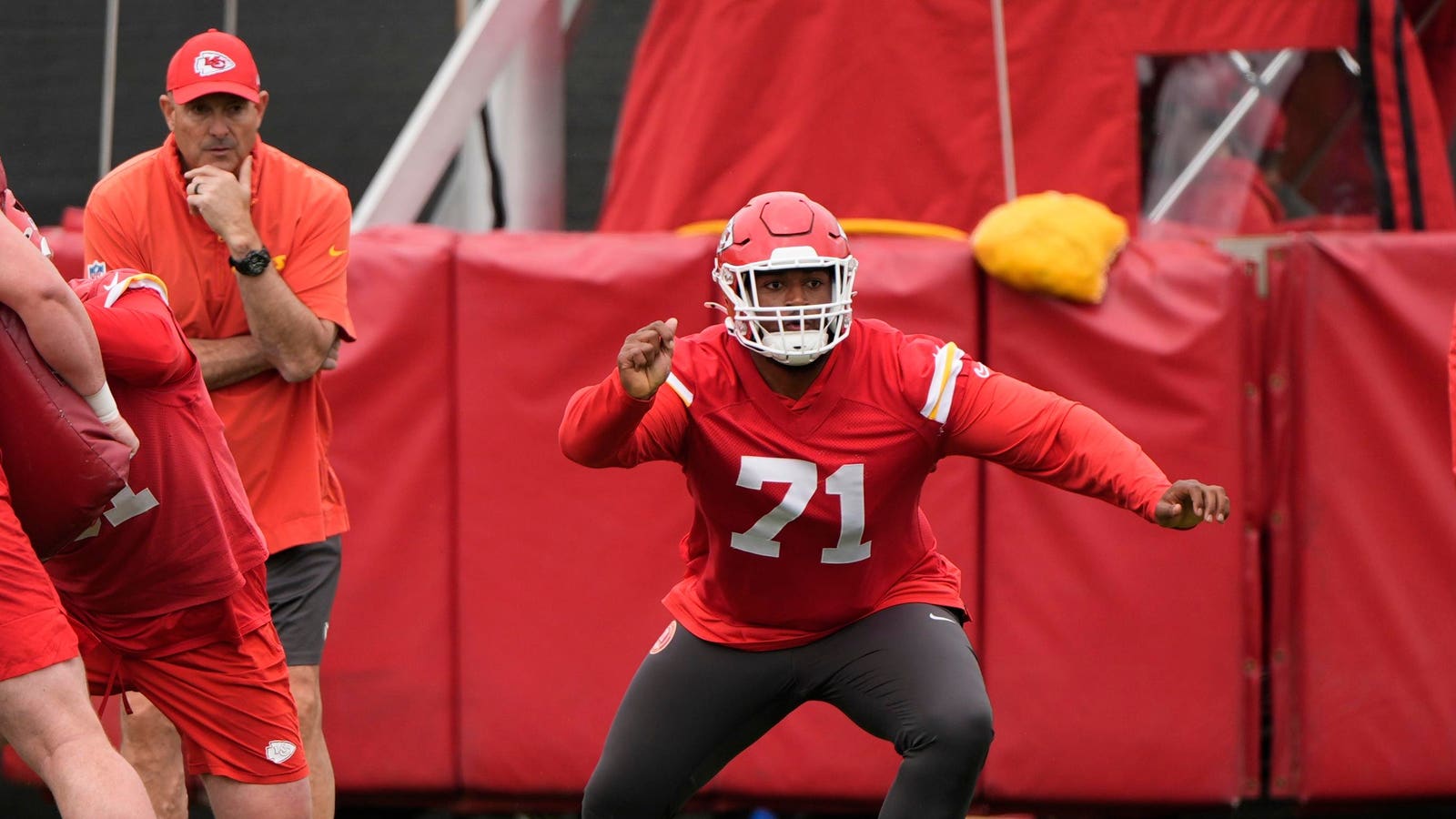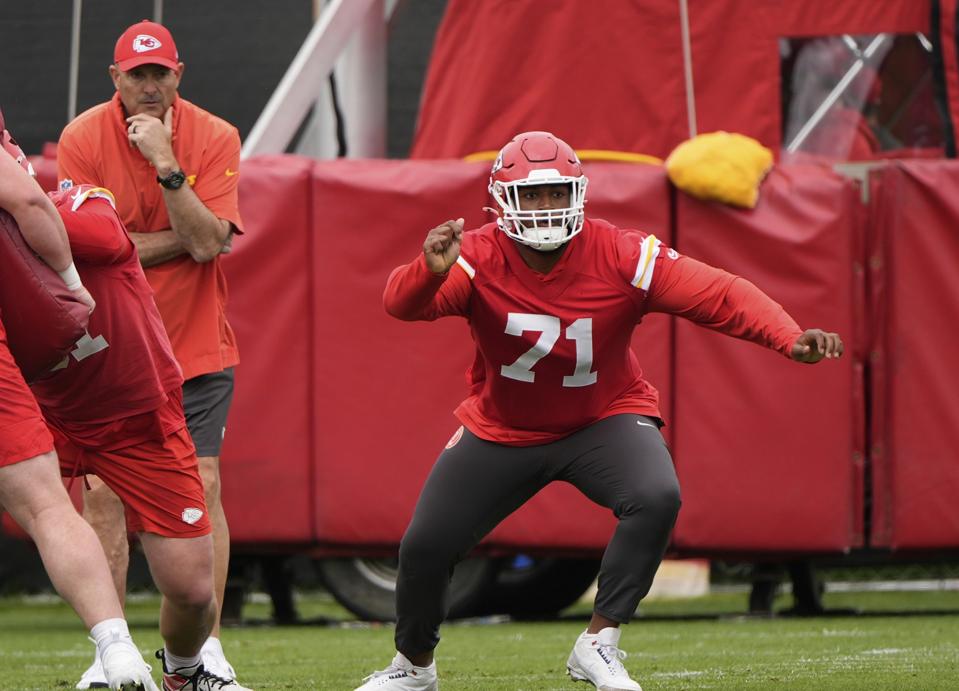Kansas City Chiefs offensive tackle Josh Simmons participates in a drill during OTAs on May 29, … More
Despite rupturing his left patella tendon on Oct. 12, rookie left tackle Josh Simmons already has been practicing with the Kansas City Chiefs.
The first-round draft pick took team reps during the third week of organized team activities (OTAs) and minicamp, and Chiefs head coach Andy Reid said he should be ready for training camp.
“This is kind of what I anticipated,” Simmons said. “This is what I worked towards.”
Simmons is about eight months removed from surgery, and recovery from a torn patella tendon typically takes six to nine months.
That’s according to Dr. Mark Adickes, a renowned orthopedic surgeon at Orthopedic Sports Clinic in Houston who also started 48 games on the Chiefs’ offensive line from 1986 to 1989. (Though Dr. Neal ElAttrache performed the surgery, Adickes spoke in generalities about Simmons.)
“Do I expect him to be 100% this season? No, I think he’s going to be 10 to 15% less than what he’ll be in his future,” Adickes exclusively shared. “But I still think he could be really good.”
When the anterior cruciate ligament injuries (ACL) of the knee is torn, it is reconstructed with a graft from the patella tendon, hamstring tendon or a cadaver, but patella-tendon tears are simply reattached.
“You put all these sutures through the patellar tendon,” Adickes said. “And then you sew it back to the bone. So then that tendon heals back.”
ACL injuries are more common among NFL players than patella-tendon tears. (Second-year tight end Jared Wiley is recovering from his own ACL tear suffered in November.) But Adickes called them pretty “equivocal” injuries with a similar timeline in recovery.
ACL injuries, though, have more variability because some also feature other ligament and/or meniscus damage, which can result in longer recoveries.
One negative for patella-tendon injuries is that they typically cause more muscle atrophy to the quadriceps than an ACL injury.
There’s also a slightly higher chance of re-injury after patella-tendon surgery, according to Adickes. Reported re-injury rates for patella tendons ranged from 2% to 50% depending on factors like surgical technique and patient activity level. ACL re-injury rates ranged from 5% to 30%.
Perhaps that slightly elevated risk is why Simmons, who Reid said would’ve been a top 10 pick without the knee injury, fell to the Chiefs at the end of the first round.
“Phenomenal athlete,” Reid said. “You can definitely see the talent.”
One of Reid’s former players is one of the more noteworthy NFL players to have suffered a torn patella tendon — and he ruptured it twice. Correll Buckhalter, a Philadelphia Eagles running back, tore his right tendon in 2004 and again in 2005. Despite the two injuries, he went on play five more years at about the same level.
On the flip side, New York Giants wide receiver Victor Cruz tore his tendon in 2014 and only played one more season in the NFL.
“Usually, you see these sorts of injuries in guys as they approach or pass 30 years of age,” Adickes said.
Patrick Mahomes, the man Simmons will be in charge of protecting, turns 30 this NFL season.
And the Chiefs have to do a better job of keeping their franchise star out of harm’s way after the Eagles exposed Kansas City’s offensive line, sacking Mahomes six times and hitting him five other times during the 40-22 drubbing in Super Bowl LIX.
But Mahomes was impressed at what he’s seen through OTAs and minicamp from the talented rookie from Ohio State.
“He looks great,” he said. “I mean, he’s moving well, he’s doing all the right things, he’s working extremely hard.”
Simmons could end up being Mahomes’ blindside protector at left tackle this season.
Adickes approximated Simmons’ knee would be at 90% in 2025 but even better in 2026.
“He’ll be that much stronger,” he said. “He’ll have that much more confidence in the leg.”




